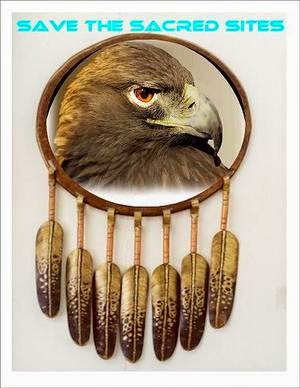US court blocks huge gold mine project in Nevada
By SCOTT SONNER
Associated Press Writer
Published: Thursday, Dec. 3, 2009 - 2:47 pm
Last Modified: Thursday, Dec. 3, 2009 - 6:27 pm
RENO, Nev. -- A federal appeals court on Thursday temporarily blocked construction of a massive gold mine project in northeast Nevada that critics say would harm the environment and ruin a mountain that several tribes consider sacred.
In a rare legal setback for the mining industry in the nation's largest gold-producing state, a three-judge panel of the 9th Circuit Court of Appeals granted an injunction to force Barrick Gold Corp. to postpone digging a 2,000-foot deep open pit at the Cortez Hills mine.
Nevada trails only China, South Africa and Australia in terms of worldwide gold production.
In reversing an earlier ruling, the judges in San Francisco said the U.S. Bureau of Land Management failed to adequately analyze the mine's potential to pollute the air with mercury emissions and dry up scarce water resources in Nevada's high desert. The project is located on Mount Tenabo, about 250 miles east of Reno.
The appellate judges concluded BLM's review was inadequate under the National Environmental Policy Act, which requires a thorough examination of large-scale projects on federal land. They said the agency didn't fully consider the air quality impacts resulting from transporting ore to an off-site processing facility 70 miles away.
The judges also said the review didn't do enough to examine the likelihood that pumping water out of the pit would cause the groundwater level to drop and potentially dry up more than a dozen streams and springs.
The ruling Thursday sends the case back to federal court in Reno until the BLM revises its environmental impact statement.
In the ruling, the appellate court upheld a federal judge's finding that opponents of the mine failed to prove they were likely to prevail on claims the mine would cause visual harm to Mount Tenabo and create a substantial burden on the tribes' ability to exercise their religion.
Several Native American tribes say their people have been worshipping at Tenabo for centuries.
Lawyers for Barrick - the largest gold mining company in the world - argued that postponing digging the mine would cause undue financial hardship on the company and its workers during tough economic times.
But the appeals court said any economic hardship "may for the most part be temporary."
"Congress's determination in enacting NEPA was that the public interest requires careful consideration of environmental impacts before major federal projects may be go forward," the judges wrote. "Suspending a project until that consideration has occurred thus comports with the public interest."
John Hadder, executive director of the Reno-based environmental watchdog group the Great Basin Mine Watch, said the court rightly concluded BLM had failed in its legal responsibility to "protect the air, water and ecological values of the area as well as the religious freedom of Western Shoshone" tribe.
"None of us are opposed to mining if it is done responsibility. However, this project is as irresponsible as it gets," he said. In addition to the Mine Watch, the plaintiffs included the Western Shoshone Defense Project and three tribes.
BLM spokeswoman JoLynn Worley said the agency was reviewing the ruling and had no comment Thursday.
Vincent Borg, Barrick's executive vice president for corporate communications, said the company was pleased the appellate court upheld the lower court ruling regarding religious freedom.
"The district court will now have to consider the extent of any injunctive relief" in regard to the other parts of the ruling the judges overturned, he said.
Barrick began construction in January on the mine, which would be one of the largest open-pit, cyanide heap leach gold mines in the United States. Company officials said at the time they were prepared to spend $640,000 a day on the project for the next 15 months.
"It is unfortunate the company decided to push this forward without addressing all concerns, especially those of the Shoshone people," said Larson Bill, a member of the Te-Moak Tribe.
Carrie Dann, of the Western Shoshone, said the project would drain the water from the mountain.
"The destruction of the water is like the destruction of the blood of the earth," Dann said. "You are destroying life of the earth and the people and wildlife that depend on it."
http://www.sacbee.com/state_wire/story/2368504.html
-----
Teresa Anahuy
http://groups.yahoo.com/group/FirstPeoplesNews
Subscribe to:
Post Comments (Atom)






No comments:
Post a Comment
Note: Only a member of this blog may post a comment.